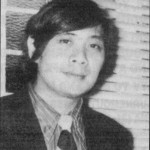By Roy Black—
The Chinese have been very much in the headlines in recent times. The apparent over-allocation of contracts to them and their excessive use of their nationals on several construction projects, including bridges, roads and buildings, have become a matter of concern for several local interests. But the Chinese involvement with Jamaica, and by extension their infiltration in the Jamaican culture, is nothing new.

From as far back as the mid-19th century, they began to develop a close association with Jamaica after arriving as indentured migrants. By the 1930’s, the Chinese population in Jamaica, occasioned by continued migration and reproduction, had risen to astronomical levels. Exhibiting a high level of entrepreneurship, unity and hard work, many soon left the plantations and set up small grocery shops, which became known as ‘Chinese Shops’. These shops began to appear in almost every crevice and corner of the island and was indeed a welcome innovation for the poorer class, who could now access their everyday foodstuff within a stone’s throw.
Colossal Contribution
The more progressive Chinese entrepreneurs soon ventured into larger commercial activities like restaurants, laundries, wholesales and music production. The latter field saw Chinese entrepreneurs making a colossal contribution to the development of early Jamaican popular music. Byron Lee of Byron Lee and The Dragonaires fame, Vincent ‘Randy’ Chin, who later established VP Records in New York, Justin Yap and his Top Deck label, Leslie Kong of Beverley’s Records, The Hookim brothers of Channel 1 Studios, and Bunny ‘Striker’ Lee were the front-runners for the Chinese in the record production field. Byron Lee, who later distinguished himself with soca music and Jamaica Carnival, produced The Maytals’ Daddy, It’s You, Never You Change and My New Name; The Blues Busters’ Behold, Soon You’ll Be Gone and I Can’t Believe That You’re Gone; Eric ‘Monty’ Morris’ Sammy Dead and Oil In My Lamp; Stranger and Patsy’s Come Back and Keith and Ken’s Jamaica Ska.

The late Vincent ‘Randy’ Chin, another Jamaican-Chinese producer, took unto himself legendary status when he established VP Records. His early career saw him operating his Randy’s Record Store and Recording Studios at North Parade in Kingston. Randy’s productions helped to guide the careers of Alton Ellis with the doo-wop songs, My Love Divine and Let Me Dream; Stranger Cole and Ken Boothe with their original version of Home Home, and John Holt with Rum Bumper. Lord Creator also recorded for Randy’s Studio 17 – Independent Jamaica, Don’t Stay Out Late and Man To Man; while Toots and the Maytals had John and James and Lost Penny. The incomparable Skatalites band did the backing, along with recording the exclusive instrumental cuts Black Joe, Machine Shop, Baby Elephant Walk, Malcolm X, Away From It All, Hello Mother and Collie Bud. Randy’s was only one of four labels that the Skatalites recorded for, the others being Studio 1, Treasure Isle and Top Deck.

And incidentally, Top Deck, operated by the Chinese-Jamaican Justin Yap in Barbican, St Andrew, between 1962-66, amassed a stockpile of masters that is now regarded as being among the all-time greatest catalogs and most sought-after recordings by Japanese roaming the island in search of exclusive Jamaican recordings. They include Distant Drums by Baba Brooks; Valley of Greens by Jackie Opel, and Scattered Lights, Lawless Street and Love in The Afternoon by The Skatalites.

But perhaps the greatest contribution made by early Chinese record producers came from Leslie Kong’s Beverley’s label. It is a matter of great historical importance that Kong released the debut recordings of Jamaica’s three major stars, Bob Marley, Jimmy Cliff and John Holt, in the form of Judge Not, Hurricane Hattie and Forever I Will Stay, respectively. He followed up with resounding hits by The Maytals, The Melodians, Ken Boothe, Delroy Wilson, Derrick Morgan, Desmond Dekker and The Aces, and the Pioneers. He was on the verge of international stardom through his involvement with the movie, The Harder They Come, when he was unceremoniously cut down by a heart attack in 1971.

The impact of Channel 1 and the Hookim Brothers is well known. They all but revolutionized reggae with a sound that was reminiscent of the Studio 1 days. With house band The Revolutionaries in attendance, hits flowed unabated – Fade Away by Junior Byles; I Need A Roof, Right Time, Pass The Kutchie, Have Mercy by The Mighty Diamonds; Woman Is Like A Shadow, by The Meditations and Ballistic Affairby Leroy Smart are but a few.

In terms of a large catalogue, perhaps only Clement Dodd’s Studio 1 could rival Bunny Lee and his labels – (Striker, Jackpot, Justice, Gorgon, Rhino and others) between the mid-to-late 1960 and early 1970s. He produced the biggest hit of 1967 – Let Me Go Girl, along with Conversation by Slim Smith and The Uniques. John Holt’s Stick By Me has always been a perennial favorite at dances even to this day. Roy Shirley’s Music Field was perhaps Lee’s first big hit as a producer. Then in 1971, he released the most popular festival song ever – Cherry Oh Baby by Eric Donaldson, and a year later, helped the People’s National Party win the general election with Delroy Wilson’s Better Must Come. There were other Chinese-Jamaican record producers like Charlie Moo and Ivan Chin, the latter being particularly crucial to the popularity of the mento era, and by extension the impact it had on the emergence of reggae.


You must log in to post a comment.